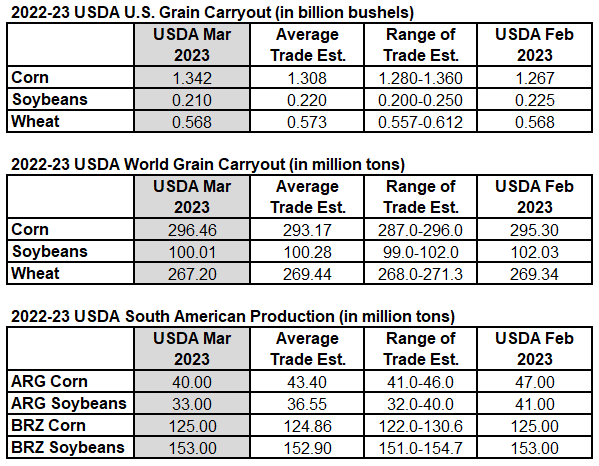U.S. Corn Carryout Grows while Argentine Crops Shrink
Today?s USDA Supply & Demand report was a mixed bag of information.
U.S. Corn exports were reduced 75 million bushels from the February estimate, leading to a larger than expected jump in domestic ending stocks. On the other hand, Argentina?s corn production estimate was reduced 3 million tons more than expected.
The bean numbers were bullish, causing an initial jump in futures prices that has since cooled off (as of this writing). A 10 million bushel cut to U.S. crush was more than offset by a 25 million bushel increase in exports, leading to a net reduction in ending stocks of 15 million bushels. Pre-report trade was expecting just a slight 5 million bushel decrease in carryout.
Argentina bean production was reduced from 41 million tons to 33 million, smaller than the average trade guess of 36.55.
The U.S. wheat balance sheet was left unchanged. World wheat supplies shrank slightly, though that cut was largely attributed to an adjustment to China?s 20/21 feed and residual use carried through to world new crop beginning inventory.
Without any major surprises in today?s report, traders will shift their interest to the closely followed Grain Stocks & Prospective Plantings reports due out at 11:00am on March 31st.

Source: USDA, Bloomberg
